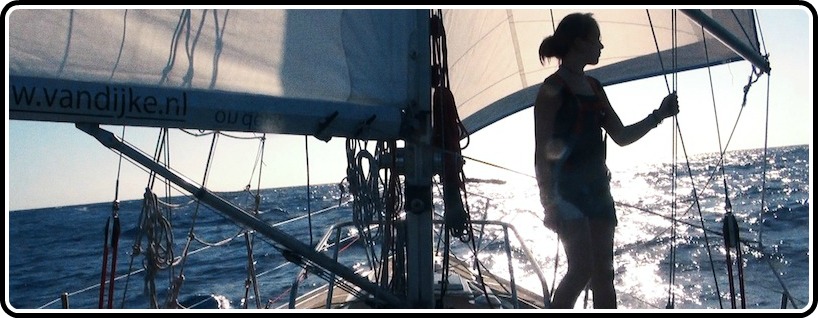
Some survival stories aren’t survival stories at all. Sometimes they eschew any cautionary narratives about absolute danger or putting your life on the line to achieve some unimaginable feat and instead give way to a celebratory tale of self-discovery and adventure that are as joyous as they are simple. Filmmaker Jillian Schlesinger’s Maidentrip is one of those stories.
The documentary, about a 14-year-old Dutch girl named Laura Dekker who became the youngest person in history to sail solo around the world, is a quite positively a breath of fresh air. Narrated by Dekker herself after the fact or from within the daily confessional-type footage she shot while on the seas, and the story is wisely framed as much more than just a girl taking hold of her identity. Through recollections ranging from a yearlong trial where Dutch child services threatened to take custody of her once the proposed voyage was made public, to the heartfelt and poignant commentary on the broken home that may be the spark that pushed her towards her adventure, Dekker’s precocious and oftentimes contradictory nature makes her a compelling subject on top of her outright astounding nautical capabilities.
Dekker is obviously the primary focus and is nothing short of a delight to watch, mostly because of her relentlessly restless spirit. Just when you think the doc will fall into cheap pratfalls in order to add some sort of unearned drama to the situation, especially in the form of a few terrifying storms that rack her 40-foot boat—nicknamed the “Guppy”—she instead takes the challenge of facing the worst that the Pacific or Indian Oceans have in store for her head-on, and remains focused and unafraid. It’s at points like these you realize that she’s most definitely the real deal.
That the film is so brisk in its runtime and editing style is conversely mind-boggling considering Dekker’s journey lasted for two whole years, primarily because Dekker chose to stop off at many port cities in order to learn some good old fashioned life lessons and see the world. Anybody who finds this brevity problematic—or the foolish thought that this somehow reflects the possibility of her trip being somehow easy— should just simply remember that she is a teenager sailing around the world all by herself. It’s in the solitary moments that Dekker is completely open, reflecting on her own life with the wide expanse of the world before her that the film truly shines. It’s a matter of contrasting what is seen and what is not seen in her footage, both offering her and the audience an essential sense of fulfillment inherent in her journey.
What also emerges through the film is Dekker aesthetically taking hold of her agency on camera, making her a collaborative filmmaker in the process. We see her setting sail as a cheerful and giddy girl, initially using her time to frequently address the camera as if she were taking a moving diary of juvenile selfies, and yet through her time around the world there is an authentic shift. She seems to intentionally move further away from the camera as time goes on, instead focusing on the natural beauty of the horizon or the bow of her boat slicing through the waves. In a sense she obtains complete freedom right before our very eyes.
Laura Dekker’s story is simply extraordinary and extraordinarily simple. It is the tale of a woman doing what she was born to do, conquering the world and maybe even a little bit of life itself. In short, Maidentrip is an incredible film, about an incredible story, about an incredible person.


